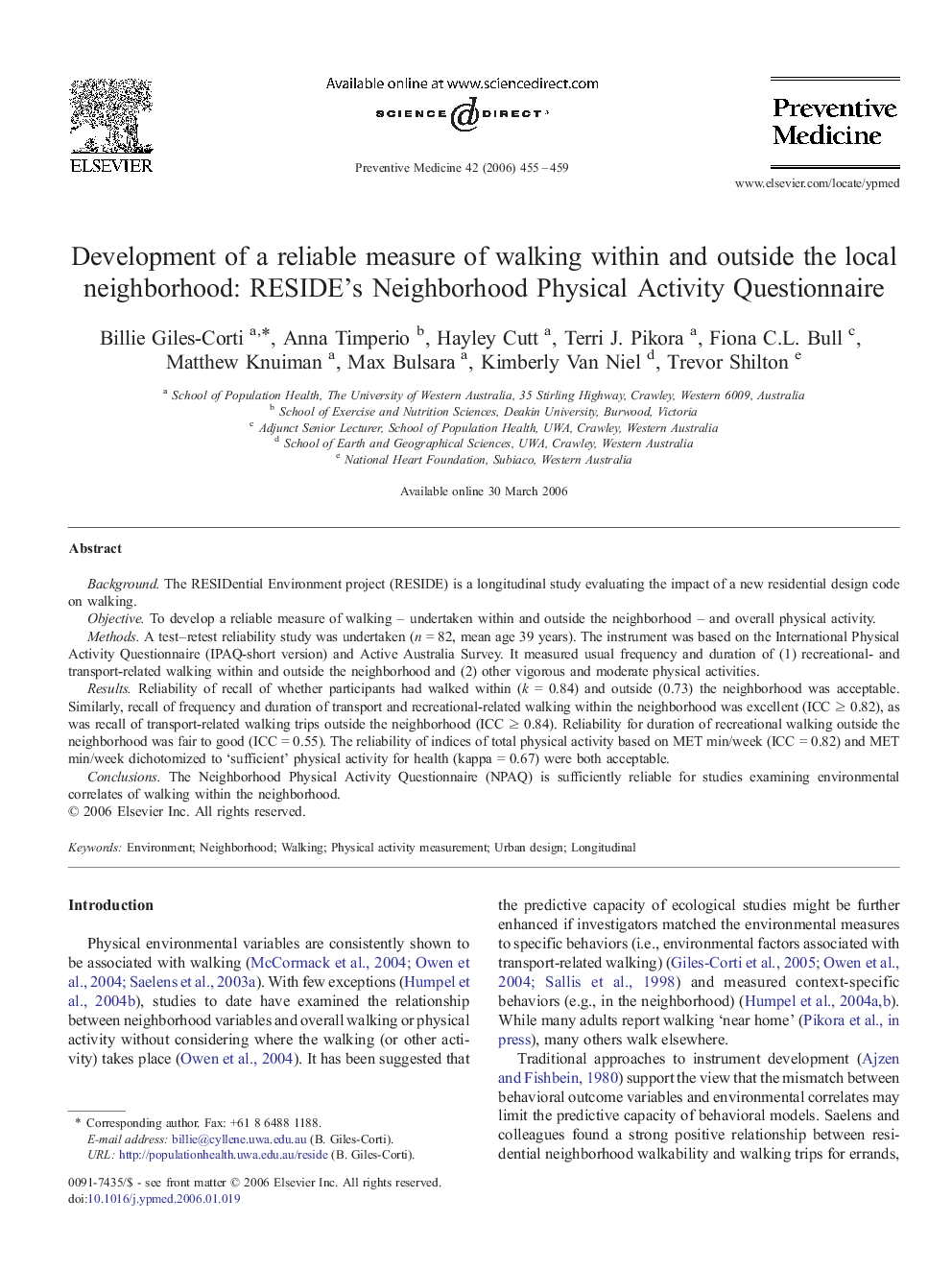| Article ID | Journal | Published Year | Pages | File Type |
|---|---|---|---|---|
| 3101914 | Preventive Medicine | 2006 | 5 Pages |
Background.The RESIDential Environment project (RESIDE) is a longitudinal study evaluating the impact of a new residential design code on walking.Objective.To develop a reliable measure of walking – undertaken within and outside the neighborhood – and overall physical activity.Methods.A test–retest reliability study was undertaken (n = 82, mean age 39 years). The instrument was based on the International Physical Activity Questionnaire (IPAQ-short version) and Active Australia Survey. It measured usual frequency and duration of (1) recreational- and transport-related walking within and outside the neighborhood and (2) other vigorous and moderate physical activities.Results.Reliability of recall of whether participants had walked within (k = 0.84) and outside (0.73) the neighborhood was acceptable. Similarly, recall of frequency and duration of transport and recreational-related walking within the neighborhood was excellent (ICC ≥ 0.82), as was recall of transport-related walking trips outside the neighborhood (ICC ≥ 0.84). Reliability for duration of recreational walking outside the neighborhood was fair to good (ICC = 0.55). The reliability of indices of total physical activity based on MET min/week (ICC = 0.82) and MET min/week dichotomized to ‘sufficient’ physical activity for health (kappa = 0.67) were both acceptable.Conclusions.The Neighborhood Physical Activity Questionnaire (NPAQ) is sufficiently reliable for studies examining environmental correlates of walking within the neighborhood.
